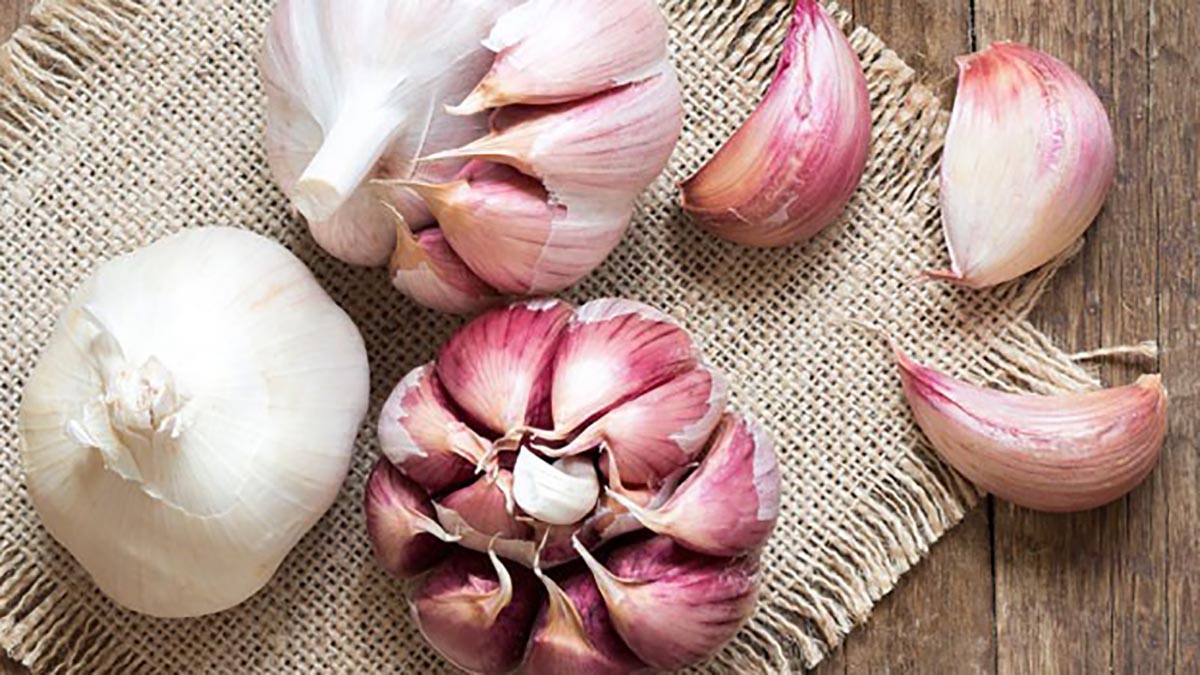Why garlic is so healthy?
Highly valued throughout the ages as a culinary spice, garlic is one of the oldest cultivated plants in the world. It is a hardy perennial belonging to the liliaceae family. Other members of this family include leeks, chives, spring onions and shallots, all distinguished by their pungent aroma and flavour. The garlic bulb is the most commonly used portion of the plant, composed of eight to 20 individual teardrop-shaped cloves enclosed in a white parchment-like skin.
Garlic's usage predates written history; Sanskrit records document the use of garlic remedies approximately 5000 years ago. Legend suggests that Egyptian pharaohs prized garlic very highly, and slaves building the pyramids were given a daily ration to keep them fit and strong. Throughout history, garlic has been regarded as a well-trusted remedy, especially during epidemics such as cholera and tuberculosis and in World War I, where it was used as an antiseptic applied to wounds to cleanse and heal and to treat dysentery caused by the poor sanitary conditions in the trenches.
For the best flavour and maximum health benefits, buy fresh garlic. Do not buy garlic that is soft, shows evidence of decay or is beginning to sprout.
It is best stored at room temperature in an uncovered container in a cool, dark place away from exposure to heat and sunlight. Storing it in this manner will help prevent sprouting. Depending on its age and variety, a whole garlic bulb will keep for anywhere from two weeks to two months.
Garlic poses little safety issues and allergies are rare. If you are using the herb for cholesterol, have your levels checked after three months. The recommended daily amount of garlic ranges from half to one whole clove per day
Under Covid, garlic is an excellent tool.
It helps us to detox the liver and to boost theimmune system, which in turn can fight more effectively against invaders like viruses and bacteria.
How to reduce the effects of bad breath?
Here is a little trick to minimize this problem.
On Fri evening, if you're not planning any visit on Sat morning, cut one clove in small tiny pieces and swallow it with some water. Don't chew it as that will impact your breath. The following are some key health benefits of this herb:
1. Contains vitamins and minerals with medicinal properties
Garlic is an excellent source of vitamin B6 (pyridoxine). It is also a very good source of manganese, selenium and vitamin C. In addition to this, garlic is a good source of other minerals, including phosphorous, calcium, potassium, iron and copper.
Many of the perceived therapeutic effects of garlic are thought to be due to its active ingredient allicin. This sulphur-containing compound gives garlic its distinctive pungent smell and taste. Luckily for us cooks, the action of chopping or crushing garlic supposedly stimulates the production of allicin; however, it is thought that cooking garlic inhibits the formation of some of the perceived medicinal properties.
2. Highly nutritious but low in calories
A 100g serving of garlic provides:
- 98 calories
- 7.9g protein
- 0.6g fat
- 16.3g carbohydrates
- 5.5g fibre
3. May reduce the risk of heart attacks
Modern research has focused on garlic's potential to reduce the risk of heart disease and cholesterol levels. Several studies suggest that garlic makes platelets (the cells involved in blood clotting) less likely to clump together and stick to artery walls, therefore acting as an anticoagulant and reducing the risk of heart attacks.
4. May have anti-cancer properties
The sulphurous compounds in garlic have also been studied for their ability to inhibit cancerous cells and block tumours by slowing DNA replication and increasing endoplasmic reticulum stress. The ability of these compounds to depress tumour cell proliferation is still being studied extensively.
5. Lowers blood pressure
Garlic may lower blood pressure slightly, mainly through its ability to widen blood vessels.
6. Has antimicrobial and antifungal properties
Garlic has a long history of use as an infection fighter against viruses, bacteria and fungi. It has been referred to as 'Russian penicillin' to denote its antibacterial properties, attributed to the compound allicin. Some skin conditions, such as warts and insect bites, may respond to garlic oil or a crushed raw garlic clove.
https://www.bbcgoodfood.com/howto/guide/ingredient-focus-garlic

